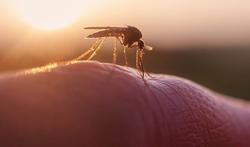According to the research team, it was not immediately clear why mosquito protective agents repel the critters, as it is difficult to observe how the mosquito's sense of smell reacts to these types of products. The researchers were able to use sophisticated techniques (genetic tools) to visualize the neuronal response of all the mosquito's odor organs. Also that of the feelers, which are actually the 'nose' of the insect. The research was carried out on live mosquitoes (Anopheles coluzzii).
Healthy Living
Mosquito repellent products, how do they actually work?
- Details
- Hits: 1073

Oddly enough, until recently it wasn't entirely clear why mosquito repellents protect our skin from mosquito bites. A team from John Hopkins University in the United States investigated what mechanisms are in place.
According to the research team, it was not immediately clear why mosquito protective agents repel the critters, as it is difficult to observe how the mosquito's sense of smell reacts to these types of products. The researchers were able to use sophisticated techniques (genetic tools) to visualize the neuronal response of all the mosquito's odor organs. Also that of the feelers, which are actually the 'nose' of the insect. The research was carried out on live mosquitoes (Anopheles coluzzii).
According to the research team, it was not immediately clear why mosquito protective agents repel the critters, as it is difficult to observe how the mosquito's sense of smell reacts to these types of products. The researchers were able to use sophisticated techniques (genetic tools) to visualize the neuronal response of all the mosquito's odor organs. Also that of the feelers, which are actually the 'nose' of the insect. The research was carried out on live mosquitoes (Anopheles coluzzii).



